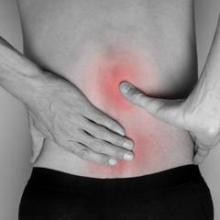Acetaminophen taken regularly or as required was no better than placebo in improving time to recovery in patients with acute low back pain, Australian research shows.
A randomized, placebo-controlled, double-dummy study in 1,643 patients presenting with acute low back pain found the median time to recovery was 17 days, both in patients assigned to 665 mg acetaminophen three times daily and in those told to take acetaminophen as required, and was 16 days in the placebo group.
After 12 weeks, similar numbers of patients in each group had achieved sustained recovery: 84.7% of participants taking regular acetaminophen, 82.8% of patients taking acetaminophen as required, and 84.3% of the placebo group.
"The clinical implications of PACE [Paracetamol for Low-Back Pain Study] require careful consideration of the efficacy of paracetamol [acetaminophen] with respect to the safe use of medicines for low back pain," the study authors wrote in the Lancet (2014 July 24 [doi:10.1016/ S0140-6736(14)60805-9]).
Acetaminophen traditionally has been recommended over anti-inflammatory medication because the side effect profile is safer, noted study coauthor Chung-Wei Christine Lin, Ph.D. However, the recommendation for its use in low back pain has come from indirect evidence in other pain conditions.
"Our advice to patients should be that for back pain, the prognosis is mostly good, most people recover reasonably well, they should stay active, and they should avoid bed rest," said Dr. Lin of the George Institute for Global Health, University of Sydney. "Beyond that, the emphasis on taking pain relief should probably be reduced, because taking pain relief doesn’t really do much beyond placebo."
A previous Cochrane review examining the use of anti-inflammatories for short-term pain relief found only a small effect, Dr. Lin noted, and other direct comparisons between anti-inflammatories and acetaminophen have shown no differences in effects.
"Patients should weigh the benefits of taking medicine for a small amount pain relief against the potential side effects and discuss this with their doctor or pharmacist" she cautioned.
The National Health and Medical Research Council of Australia and GlaxoSmithKline funded the study. Dr. Lin had no relevant financial disclosures.

